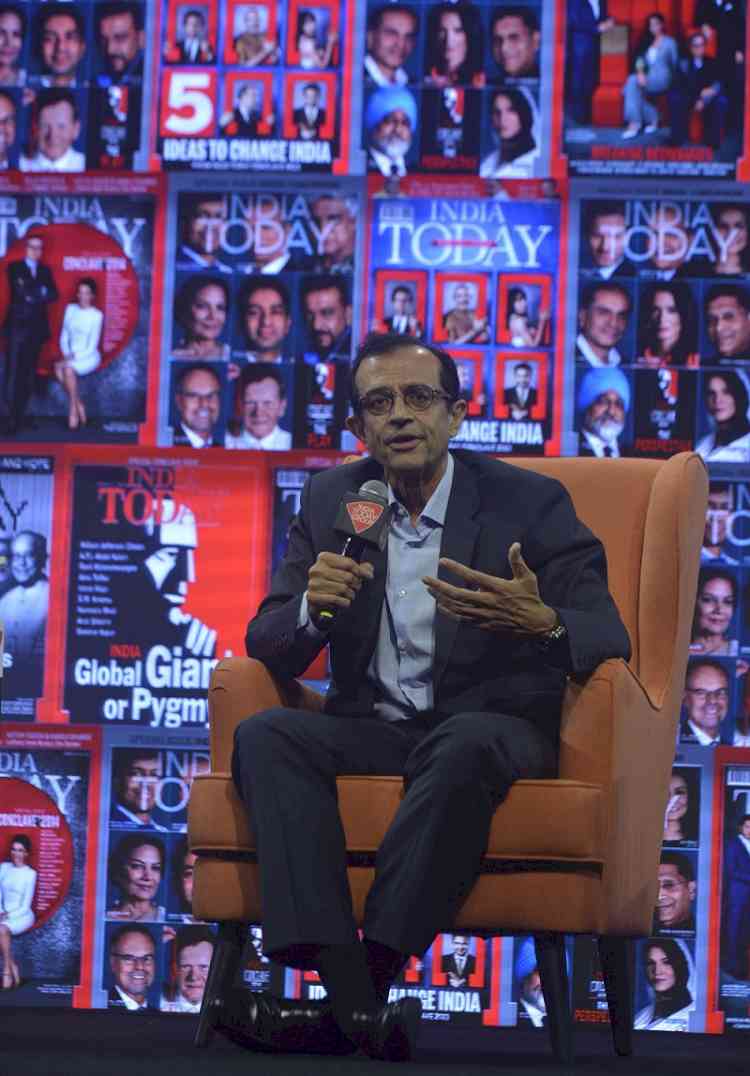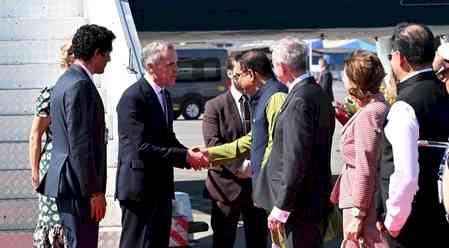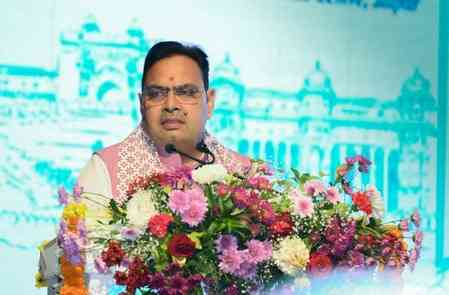The next decade is India's decade, but currently far behind China: Prof Vikram Gandhi
Professor Vikram Gandhi, senior lecturer at the Harvard Business School was at India Today Conclave Mumbai 2022.

Professor Vikram Gandhi, senior lecturer at the Harvard Business School said that as far as growth goes, the next decade is India's decade. He was speaking at the India Today Conclave 2022 in Mumbai.
"The world is going through a serious course correction in equity and capital flows. In the short term, the flow into India is going to be limited, there have been flows outside India, and given what the US Federal Reserve said, there are still going to be outflows. As far as growth goes, the next decade is India's decade," Professor Gandhi said.
He maintained that India at the moment is far behind China where people think big when it comes to investment. "There is some serious concern about supply chain concentration in China and there is a huge opportunity for manufacturing in India. There was some consistency in policy, which investors look at and I am optimistic that opportunity will grow," he added.
India is just about to take off but China is set to overtake the United States.
Talking about manufacturing in India, the former head of Morgan Stanley India said that people are concerned about the changes in geopolitics around China, but there are more people looking at Vietnam and Taiwan than towards India and the issue is the execution is lacking. "In terms of manufacturing, what's happened with cell phone manufacturing, in which China has a 70-80% market share is that in a short period of time due to better execution and production-linked incentives India has become the second biggest manufacturer in the world.," Professor Gandhi added.
He further said that there needs to be a lot more partnership between the center and state governments, creation of jobs and vocational training at a large scale and India is very uncompetitive from the cost of infrastructure and public good standpoint. "While the Indian market is a big market, this is an opportunity for India to be manufacturing for the world in addition to manufacturing for India. We have a unique opportunity given the geopolitical rifts between India and the US, where they can diversify."
Speaking about the impact of investments in India, Gandhi said that Mumbai is the second largest coastal city at risk in the world from climate change. "A significant part of Mumbai will be underwater, and historically, the city grew out of the sea. A combination of sea water rising, increasing rainfall, and more cyclone coasts will be under water and, from a development standpoint, half of Mumbai will be hit," Professor Gandhi said.
Highlighting that energy transition is a small piece of the pie, agriculture, urban development, clean technology, and climate strategies are where the biggest opportunities lie, he said "it is the equivalent of moving from horse carriage to combustion engines and India is ripe for taking massive amounts of this investment opportunity."
"50% of the Current Account Deficit of India is oil, which will be replaced by metals and the world will be powered by batteries. India should be investing in metals and rare Earth metals and, instead of oil, people will be looking for metals," Professor Gandhi noted.



 City Air News
City Air News 










